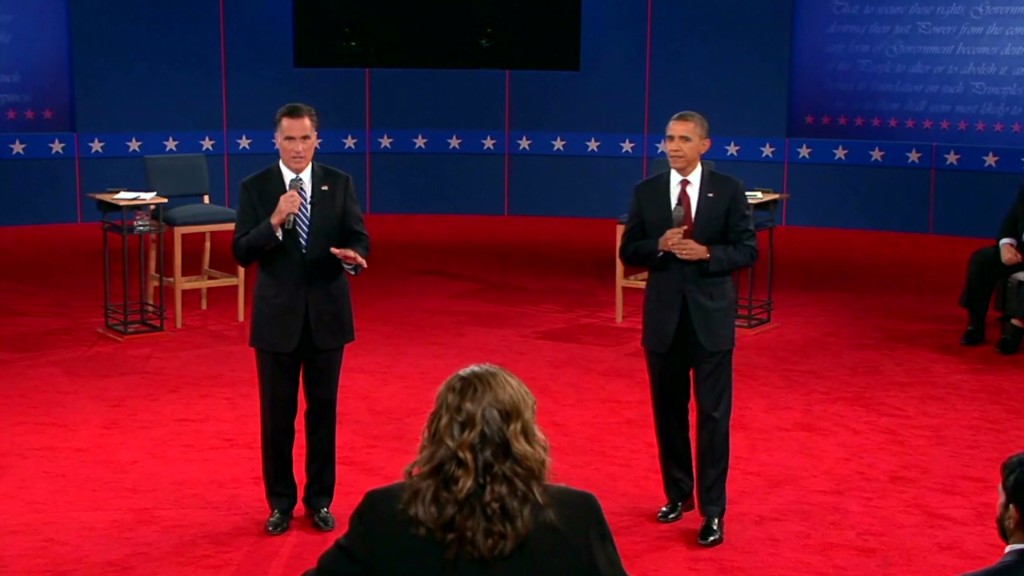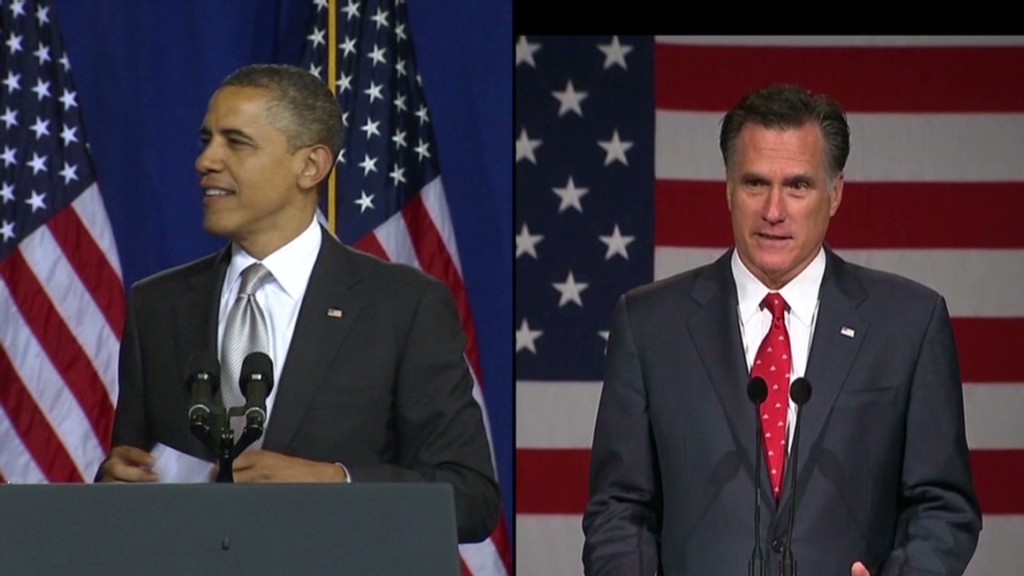
President Obama and Mitt Romney each used their second presidential debate to talk tough on China.
Romney pledged that he would label China as a currency manipulator on his first day in office -- a promise he frequently works into his campaign speeches. And he accused China of "stealing" designs, patents and technology pioneered by U.S. companies.
"There's even an Apple store in China that's a counterfeit Apple store, selling counterfeit goods," Romney said. "They hack into our computers. We will have to have people play on a fair basis."
Obama was more circumspect in his use of language, but he touted the trade complaints his administration has filed against China over auto parts. Obama also recently blocked the sale of American wind farm companies to a Chinese firm.
Talking tough on China has become a campaign ritual for politicians of both parties -- even if, as experts predict, the rhetoric moderates after Nov. 6 regardless of who wins.
Related: Americans: China is an economic threat
The latest criticisms from the Republican candidate comes after the Treasury Department last week delayed the release of a report that has in the past criticized China for keeping the value of its currency artificially low.
Delays are nothing new, but the next edition of the report is now unlikely to be issued until after the election.
The president has run a campaign that has repeatedly sought to draw connections between Romney's tenure at Bain Capital and the outsourcing of American jobs to China.
"Mitt Romney: tough on China? Since when?" a recent ad asked.
"[Romney] says he's gonna take the fight to them, he's going to go after these cheaters, and I've got to admit, that message is better than what he has actually done about this thing," Obama said earlier this month in Ohio.

Romney and Obama are not the first presidential candidates to beat up on China.
Bill Clinton famously referred to China's leaders as the "butchers of Beijing" during the 1992 presidential race. Four years later, George W. Bush criticized Clinton for being too easy on China.
"These guys all ate crow," said David Zweig, an associate dean at Hong Kong University of Science and Technology. "Once in office, presidents tend to change their behavior."
That shift is not surprising given the nature of the relationship. China is one of the United States' largest trading partners, and the economies of the two countries -- the largest and second largest in the world -- are increasingly interconnected.
Related: Ford posts record Chinese sales
Beijing holds more than $1 trillion in U.S. debt, and U.S. exports to China are on the rise. China's currency, the yuan, has been allowed to appreciate in recent years but many American businesses argue it still does not reflect its true market value, giving Chinese exporters an unfair competitive advantage.
Many analysts worry that Romney's plan to label China a currency manipulator could backfire, and the specificity of the promise leaves him few options but to follow through.
"He has created a huge problem for himself," Zweig said. "He has said consistently he will do it. So how does he climb down from that?"
Economists are even more worried about the second part of Romney's initial China plan, which is to direct the Department of Commerce to institute countervailing duties on Chinese imports if China "does not quickly move to float its currency."
That could spark a trade war between the two countries -- a circumstance likely to end unhappily for both Beijing and Washington.
Related: Romney's China attacks worry business
The Obama administration has taken protectionist actions, introducing tariffs on Chinese-made solar panels and tires.
But the benefits have been hard to discern, and consumers have ended up paying more for goods. According to a study by the Peterson Institute for International Economics, the tire tariff cost American consumers a total of $1.1 billion in 2011.
Chinese officials have tolerated the campaign rhetoric with relatively good humor so far. Comment has been restricted to editorials in state-run media that are particularly critical of Romney.
Zweig said that China's top officials are very much in tune with the realities of American politics, even down to which states are crucial to secure electoral victory.
But talk is one thing, Zweig said, and action is another. Should a future administration depart from precedent and become significantly more aggressive toward China, Beijing will respond.


